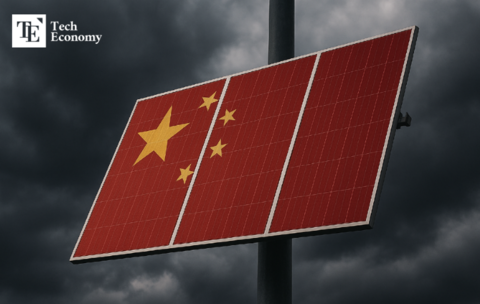[실리콘밸리] 2월3주차 – UFO, 스파이 풍선, 보안 스타트업의 부상
입력
수정
[실리콘밸리]는 Wellfound Inc (전 Angel.co)에서 전하는 해외 벤처업계 동향을 담았습니다. Wellfound Inc는 실리콘밸리 일대의 스타트업에 인사, 채용, 시장 트렌드 정보를 종합적으로 제공하는 기관입니다.
저희 벤처경제(Ventue Economy)와 영어 원문 공개 조건으로 콘텐츠 제휴가 진행 중입니다.

실리콘밸리, 인공위성과 고고도 풍선으로 근우주(near space)에 침입하다
힌덴부르크호 참사가 발생한 지 거의 90년이 지난 지금, 혹자는 우리가 지금 제2의 풍선 시대에 접어들었다고 말하고 있습니다. 다시 말해 우리는 새로운 스푸트니크적 순간, 즉 사람들이 무언가를 해야 한다는 것을 집단으로 깨닫게 하는 사건의 한가운데에 있다는 의미죠.
"이 모든 것들이 추락하며 새로운 우주 경쟁이 일어나고 있습니다"라고 Vox는 선언했습니다. 지난주에는 대형 고공 풍선이 미국 전역을 떠돌다가 사우스캐롤라이나 해안에서 미국의 F-22 랩터 전투기에 의해 극적으로 격추되는 사건이 발생했습니다. 공식 보도에 따르면 이 풍선의 고도는 자유의 여신상과 비슷한 200피트 정도였으며, 제트 여객기 크기의 짐을 싣고 있었다고 합니다. 지난 몇 주 동안 미국 전투기는 중국이 기상 풍선이라고 주장한 다른 고고도 물체 세 개도 격추한 바 있습니다.
이 사건으로 인해 미국의 관료들은 레이더와 대기 추적기를 강화하여 미국 영공을 더욱 면밀히 조사했습니다. 또한 비밀스럽게 성장하는 분야인 방위 기술에 주목하고 있다고 하네요.
기술 채용 담당자: 복리후생 혜택을 유리하게 활용하기
직원 복리후생은 모든 기업 문화의 핵심입니다. 2020년에는 유연성과 원격 근무에 중점을 두면서 풀타임 근무 직원이 선호하는 복리후생에 큰 변화가 있었습니다. 2023년에 접어든 지금, 직원들이 가장 관심 있어 하는 복리후생은 무엇일까요? 보상으로 경쟁할 수 없다면 채용 시장에서 어떻게 경쟁력을 유지할 수 있을까요?
원격 근무 옵션부터 의료 혜택까지, 귀사를 돋보이게 할 수 있는 다양한 방법이 있습니다.
부풀어 오르는 우주 산업
전 세계가 미국 영공을 가로지르는 중국 풍선에 집중하고 있을 때 콜롬비아, 코스타리카, 베네수엘라 상공에도 미확인 대형 물체가 비행했습니다. 이들 국가는 배후에 어떤 위협이나 악의가 있다고 판단하지 않았고 해당 물체를 그냥 띄워 보내기로 결정했습니다.
매년 수만 개의 풍선이 우주 근처로 떠다니는 것은 사실입니다. 미국 국립기상청에서만 매년 약 6만 개의 열기구를 발사합니다. 폴리티코에 따르면 미 국방부는 지난 2년간 고고도 풍선 제작에 약 40억 달러를 지출했습니다.
왜 이런 구식 기술에 관심을 가질까요? 업계 전문가인 조지 하웰은 "저렴하고, 운반하기 쉬우며, 대량으로 배치할 수 있고, 탑재량에 구애받지 않습니다"라고 설명합니다.
근우주 침략 스타트업
애리조나주 투손에 본사를 둔 성층권 열기구 회사인 World View는 지난달 스팩합병을 통해 상장할 계획을 발표했습니다. 이 회사는 장시간 고해상도 이미지를 제공하는 '스트라톨레이트'를 개발합니다. (이 회사는 우주 관광 서비스도 제공합니다)
콜로라도에 본사를 둔 Urban Sky는 세계 최초로 재사용 가능한 성층권 풍선을 개발하고 있습니다. '마이크로 풍선'이라고 불리는 이 풍선은 폭스바겐 버스 크기로, 도시 지역 상공에서 데이터를 수집하기 위해 우주 근처를 떠다닐 수 있습니다. 이 회사의 설립자 Jared Leidich는 2014년 세계 신기록 우주 다이빙에 사용된 우주복을 약 136,000피트 상공에서 풍선을 통해 디자인하는 등 이 분야에서 상당한 경력을 보유하고 있습니다.
Near Space Labs는 "지리공간 이미징의 모든 것에 대한 새로운 사고방식"으로 사람들을 초대합니다. 이 회사의 고공 풍선에는 Swifty라는 소형 자율 로봇이 탑재되어 6만~8만 5천피트 상공에서 주변 세계를 촬영합니다. 회사는 해당 과정에서 탄소 배출을 전혀 하지 않으며, 최근에는 고해상도 지구 이미지를 대학과 비영리 단체에 무료로 제공하는 프로그램을 시작했다고 밝혔습니다.
멕시코의 역풍
지난달 멕시코는 "자국 내 태양 지구공학적 실험을 금지하고 적절한 경우 실험을 중단할 계획"이라는 성명을 발표했습니다. 반사 기상 풍선을 띄우려는 미국 스타트업 Make Sunsets의 계획을 포함하여 자국 내 태양 지구공학 실험을 허용하지 않겠다는 발표였습니다. 이 풍선에는 소량의 이산화황이 포함되어 있으며 햇빛을 반사하여 지구를 식히기 위한 것이었지만 일각에서는 이 계획이 홍보용 스턴트일 뿐이라는 의견도 있습니다.
유레카!
이러한 사건을 계기로 에니그마 랩의 설립자는 전 세계 UAP 목격 및 사건에 대한 정보를 수집하고 정리하는 데 도움이 되는 저장소 또는 데이터베이스를 만들게 되었습니다. 이 저장소를 통해 개인이 목격한 모든 것을 보고하고 기록할 수 있으며, 연구자와 조사자들이 UAP의 성격과 특성을 더 잘 이해하는 데 도움이 될 것입니다.

트렌드
무인 드론 무리
미국은 자율주행 군용 차량을 개발하기 위해 스타트업과 협력하고 있습니다. 미군과 협력해서 개발한 자율 드론 무리가 미래의 전쟁터를 뒤덮을지도 모르겠네요.
미군은 드론 무리를 격추하는 데도 투자하고 있습니다. 로스앤젤레스에 본사를 둔 Epirus는 세계에서 가장 강력한 소프트웨어 정의 고출력 마이크로웨이브(HPM) 시스템으로 불리는 레오니다스(Leonidas)라는 대전자 시스템을 개발하기 위해 작년에 2억 달러의 시리즈 C를 유치했습니다. 이 회사는 미 육군으로부터 무인 드론 무리를 격추하는 계약을 수주하기도 했다네요. 좀 더 성숙한 스타트업인 Anduril은 미국 특수작전사령부로부터 10억 달러 규모의 계약을 수주하여 대드론 시스템 통합 작업을 주도하고 있습니다.
전문가들은 전투기보다 훨씬 저렴한 솔루션이라고 말합니다.
억만장자 피터 틸은 군대, 국경수비대, 광업 회사 등이 사용할 수 있는 특수 도킹 스테이션을 만드는 드론 회사인 퀀텀시스템즈(Quantum-Systems GmbH)에 투자했습니다. 퀀텀시스템즈는 2022년에 독일 군대를 통해 우크라이나 군대를 지원하기 위한 42대의 드론을 납품하기도 했습니다.
하지만 이러한 자율 기계가, 특히 전장에서 사용되는 것에 대해 비판적인 시각도 존재합니다.
'Stop Killer Robots'라는 글로벌 캠페인은 치명적인 자율 무기가 생사를 결정할 수 있는 권한을 기계에 부여하고 알고리즘 편향으로 인해 소외 계층에 불균형적인 피해를 줄 수 있어 매우 비윤리적이라고 주장하며 자율 무기의 금지를 요구하고 있다고 합니다.
군사 안보 기술
러시아의 우크라이나 침공과 같은 최근의 국제적 사건으로 인해 일부 군사 스타트업이 수혜를 입었습니다. 이러한 스타트업의 제품은 군용 및 상업용 애플리케이션을 모두 보유하고 있어 군용 및 민간용으로 모두 사용될 수 있다는 것을 의미합니다. 이 기사에서는 지난 2년 동안 우주 산업에 700억 달러 이상의 민간 자본이 투자되었다는 사실도 언급하고 있습니다. 이는 우주 탐사 및 방위와 관련된 군사 및 상업용 애플리케이션에 대한 상당한 관심과 자금이 있음을 시사합니다.
전 구글 CEO 에릭 슈미트는 중국과 보조를 맞추기 위해 미국 정부에 군사 AI에 수십억 달러를 투자하도록 로비하는 중이라고 합니다. 그가 위성 기술에 막대한 투자를 하고 있는 것은 놀라운 일이 아니죠. 실리콘밸리에 본사를 두고 2015년에 출범한 국방 혁신 유닛은 이미 우크라이나에서 사용 중인 위성을 개발했습니다.
매사추세츠주 케임브리지에 본사를 둔 Notch는 군용 및 상업용 무선 솔루션 개발을 전문으로 하는 첨단 기술 스타트업입니다. Notch의 기술은 자연적으로 존재하지 않는 특성을 갖도록 설계된 물질인 '메타물질'을 기반으로 합니다. 두 번째로 소개한 스타트업은 군인과 민간인 모두를 보호하기 위한 지능형 시스템을 개발하는 데 주력하는 Shield AI입니다. 설립자 중 한 명이 전직 네이비실 출신으로 군사 작전에 대한 전문성을 갖추고 있습니다.
Epirus는 세계에서 가장 강력한 소프트웨어 정의 고출력 마이크로웨이브(HPM) 시스템으로 불리는 레오니다스(Leonidas)라는 대전자 시스템을 개발하기 위해 작년에 2억 달러의 시리즈 C를 유치했습니다. Tonbo Imaging은 전장 현대화 기술, 몰입형 감시 및 군용 애플리케이션을 위한 전략 전자 제품을 제공합니다.
국가 안보 문제를 해결하기 위한 머신 러닝 제품을 개발하는 Vannevar Labs는 작년의 어려운 자금 조달 환경 속에서도 1,200만 달러 규모의 시리즈 A를 유치했습니다.
증가하는 위협, 급증하는 사이버 보안
정부와 기업에 대한 위협이 계속 증가함에 따라 사이버 보안의 중요성이 점점 더 커지고 있습니다. 지난 몇 년간 솔라윈즈 해킹과 같은 국가 주도의 사이버 공격이 증가하면서 세간의 이목을 집중시킨 사건들이 연이어 발생함에 따라 전문가들은 AI와 양자 컴퓨팅의 발전이 위협을 더욱 가중할 것이라고 입을 모으고 있지요.
로버트 뮬러 전 FBI 국장은 "해킹을 당한 기업과 당할 기업, 두 가지 유형만 존재한다"는 유명한 말을 남겼습니다. 이로 인해 사이버 방어에 많은 에너지가 투입되고 있으며, 초기 단계의 스타트업은 사이버 보안을 개선하기 위해 최고의 인재를 고용하고 있습니다.
이러한 스타트업 중 하나인 Castle은 퍼스트 라운드 캐피탈의 지원을 받는 회사로, 고객 여정의 모든 단계를 모니터링하여 눈에 띄지 않는 사기를 시각화하고 사전에 차단하는 데 도움을 줍니다. Castle은 고객 행동을 모니터링하여 비정상적인 활동을 감지하고 사기 행위가 발생하기 전에 이를 방지하기 위한 조치를 취할 수 있습니다.
샌프란시스코에 본사를 둔 또 다른 스타트업인 At-Bay는 디지털 시대를 위한 사이버 보험을 제공합니다. 이 회사는 지속적인 취약성 모니터링을 통해 기업이 랜섬웨어와 같은 위험에 대처할 수 있도록 지원합니다. At-Bay는 최근 토론토의 기술 솔루션 제공업체를 인수하여 상업용 보험의 디지털 전환을 가능하게 했습니다.
Prelude는 사이버 보안을 전문으로 하는 캐나다 회사입니다. 이 회사는 조직의 보안을 개선하는 데 도움이 되는 소프트웨어를 개발했습니다. 사용자가 보안 시스템에 대해 능동적으로 질문할 수 있도록 하여 복잡한 보안 용어를 이해하기 쉬운 언어로 번역하는 방식으로 작동합니다. 이를 통해 조직은 보안 시스템을 더 잘 이해하고 잠재적 위험을 식별하여 사이버 공격이 발생하기 전에 예방 조치를 취할 수 있습니다. Prelude의 고객은 불확정 요소에도 불구하고 보안 위험의 우선순위를 쉽게 지정하고 해결할 수 있습니다.
마찬가지로 샌프란시스코의 Fletch는 자연어 처리(NLP)를 사용하여 모든 사람이 사이버 위협에 한발 앞서 대응할 수 있도록 하는 임무를 수행하고 있습니다. Fletch의 NLP 기반 시스템을 통해 조직은 자연어 텍스트를 분석하고 공격을 나타낼 수 있는 패턴을 탐지하여 잠재적인 사이버 위협에 신속하게 식별하고 대처할 수 있습니다.
이륙하는 로켓 기업
SpaceX와 같은 선구적인 스타트업이 우주선을 발사하고 회수하는 데 필요한 기술을 지속적으로 혁신하고 개선하면서 로켓 산업이 급성장하고 있습니다. '뉴스페이스'라고도 불리는 이 산업은 기록적인 투자를 유치하고 있으며 전 세계 기술 기업들에게 기회를 열어주고 있습니다. 그 결과 전문가들은 우주 산업이 향후 수십 년 내에 3조 달러 규모로 성장할 수 있을 것으로 예측하고 있습니다.
전문가들은 특히 중국에서만 민간 로켓 발사가 두 배로 증가할 것으로 예측하며, 이는 잠재적으로 우주 교통 관리에 영향을 미칠 수 있습니다. 창업자들은 이를 우주에서 ‘지속 가능한’ 미래를 만들 수 있는 기회로 보고 있습니다.
초기 단계 로켓 회사인 Turion Space는 인류의 행성 간 미래에 필요한 기술을 개발하는 것을 목표로 하는 전직 SpaceX 엔지니어가 설립한 회사입니다. 투리온 스페이스는 우주 이동 및 물류, 우주 영역 인식 임무를 수행할 수 있는 지구 저궤도 우주선인 드로이드(DROID)를 개발하고 있습니다.
로켓 스타트업의 부상은 우주여행과 탐사에 혁명을 일으킬 수 있는 잠재력을 지닌 우주 산업에 있어 매우 흥미로운 발전입니다. 투자가 계속 쏟아지고 있는 가운데 로켓 산업에서 어떤 새롭고 혁신적인 아이디어가 실현될지 지켜보는 것도 흥미로운 일입니다.
해외 투자 소식
미국 콜로라도주 롱몬트에 본사를 둔 자율 상업용 잔디 깎는 기계를 만드는 Scythe Robotics는 Amazon의 Alexa Fund의 참여 덕분에 Energy Impact Partners가 주도하는 4,200만 달러 규모의 시리즈 B를 유치했습니다.
플로리다주 세인트피터스버그에 본사를 둔 지리공간 데이터 수집 및 분석 플랫폼인 Spatial Networks는 유틸리티, 건설, 환경 서비스, 엔지니어링 등 현장 집약적 산업을 위한 AI 기반 지리공간 데이터 인텔리전스 솔루션을 발전시키기 위해 케인 파트너스와 케넷 파트너스가 주도하는 4,200만 달러 규모의 시리즈 A를 유치했습니다.
샌프란시스코에 본사를 둔 위성 제조업체이자 지구 관측 회사인 Capella Space는 이미징 역량을 확장하고 새로운 데이터 제품을 개발하기 위해 미국 혁신 기술 펀드가 주도하는 성장 주식 펀딩에서 6천만 달러의 자금을 조달했습니다.
필라델피아에 본사를 둔 자동화된 항공 및 지상 보안 로봇 회사인 Asylon Robotics는 방위 포트폴리오를 강화하기 위해 Veteran Ventures로부터 불특정 투자 라운드를 유치했습니다.
이스라엘 텔아비브에 본사를 둔 초기 단계 벤처 기업인 Earth & Beyond Ventures는 1억 2,500만 달러 규모의 펀드를 조성하여 우주 및 지상 분야의 이스라엘 딥테크 기업을 지원했습니다.
UFOs, spy balloons, and the rise of security startups
Silicon Valley invades near-space with satellites and high altitude balloons
Nearly nine decades after the Hindenburg disaster, some speculate we’re entering the Second Age of the Balloon. Put another way, we’re in the midst of a new Sputnik moment—an event that makes people collectively realize they need to do something.
“As all these objects fall, a new space race is rising,” Vox proclaimed. Last week a large high altitude balloon floated across the U.S. before being shot down in dramatic style by a US F-22 Raptor jet off the South Carolina coast. The balloon was about 200 feet tall—comparable to the Statue of Liberty— with a jetliner size payload, according to official reports. In the past couple weeks, American fighter jets shot down three other high-altitude objects that Beijing claimed were weather balloons, too.
The incidents led U.S. officials to enhance radars and atmospheric trackers to more closely scrutinize the nation’s airspace. They also put a spotlight on often-secretive and growing part of the economy: defense tech.
Tech recruiters: use your benefits to your advantage
Employee benefits are a key part of any company's culture. 2020 showcased a large shift in preferred benefits for 9 to 5 employees, with an emphasis on flexibility and remote work. Now that we're entering 2023, what are the top benefits employees are interested in? How can you stay competitive in the recruiter market if you can't compete on compensation?
From remote work options to healthcare benefits, there are plenty of ways to make your company stand out.
Dive Deeper
Why the balloon and UFO affairs are a Sputnik moment (Vox)
A Rising Awareness That Balloons Are Everywhere in Our Skies (New York Times)
Mexico cracks down on solar geoengineering, forcing startup to pause operations (CNBC)
Startups Thrive With Contracts Via Defense Innovation Office (Bloomberg)
Ballooning space industry
At the same time the world was focused on the Chinese balloon crossing U.S. airspace, a large unidentified object flew over Colombia, Costa Rica, and Venezuela. Those countries opted to let it to float away after ruling out espionage.
It turns out, that’s the case with tens of thousands of balloons that float into near space every year. The National Weather Service alone launches around 60k high-flying balloons each year. The Pentagon spent nearly $4B over the past two years on its own high altitude balloons, according to Politico.
Why the interest in such old-school tech?
“They’re cheap, easy to transport, can be fielded in large numbers and are payload agnostic,” industry expert George Howell wrote.
Startups are near-space invaders
Tucson, Arizona-based World View, a stratospheric ballooning company, last month announced plans to go public via SPAC merger. The company develops a “stratollite” that provides high-res imagery for extended periods. (The company also offer space tourism.)
Colorado-based Urban Sky is creating what it claims as the first ever reusable stratospheric balloon. Called “micro-balloons,” they’re the size of a VW bus and can hover in near space to collect data over urban areas. Company founder Jared Leidich has some chops in this arena, having designed the space suit used in the world record space dive in 2014 via a balloon at nearly 136k feet.
Near Space Labs invites people to “step inside a new way of thinking about all things geospatial imaging.'” The company's high-altitude balloons that carry a small, autonomous robot called Swifty to capture the world around them at 60k to 85k feet in the air. The company says it’s done zero carbon emissions and recently launched a program to make its high-resolution Earth imagery available to universities and nonprofits for free.
Headwinds in Mexico
Last month Mexico issued a statement that it plans to “prohibit and, where appropriate, stop experimentation practices with solar geoengineering in the country” to stop plans by U.S. startup Make Sunsets to release reflective weather balloons into the skies.
The plan was for the balloons, filled with helium and a small amount of sulfur dioxide, to float high into the stratosphere and burst, dispersing sulfur dioxide particles to reflect back sunlight and (theoretically, at least) cool the Earth. Though, there’s plenty of speculation it was a publicity stunt.
New inspiration
These high-profile incidents inspired the founder of Enigma Labs to create a repository to help catalog, score and crowdsource sightings (also called “unidentified aerial phenomena”) and incidents worldwide.
Trending in Tech
Unmanned drone swarms
The U.S. is working with startups to develop autonomous military vehicles. Swarms of autonomous drones developed by the U.S. military and others could blanket future war zones.
The military is also investing in shooting down drone swarms. Los Angeles-based Epirus raised a $200M Series C last year to develop a counter-electronics system called The Leonidas, billed as the world’s most powerful software-defined high-power microwave (HPM) system. The company won a U.S. Army contract to zap down unmanned drone swarms. A more mature startup, Anduril, won a $1B contract from U.S. Special Operations Command to lead its counter-drone systems integration work.
It’s a lot cheaper solution than fighter jets, experts say.
Billionaire Peter Thiel invested in Quantum-Systems GmbH, a drone company that creates special docking stations intended for use by the military, border guards, mining companies, and others. In 2022, Quantum-Systems delivered 42 drones through the German armed forces to support the Ukrainian army.
Though, there are critics of such autonomous machines, especially on the battlefield.
A global campaign called Stop Killer Robots seeks to ban lethal autonomous weapons, arguing they’re deeply unethical because they give machines control over life-and-death decisions and could disproportionately harm marginalized communities through algorithmic biases.
Defense tech to the rescue
The Russian invasion of Ukraine and other international incidents have been a boon for some military startups, many of which have both military and commercial applications (“dual use”). More than $70B of private capital was invested in the space industry in the past two years.
Former Google CEO Eric Schmidt is lobbying the U.S. government to invest billions in military AI to keep pace with China. It’s no surprise he has heavy investments in satellite tech. The Defense Innovation Unit, which has its headquarters in Silicon Valley and was launched in 2015, has developed satellites already being used in Ukraine.
Cambridge, Mass.-based Notch is a “metamaterial” deep tech startup developing wireless solutions for defense and commercial world. Shield AI is on a mission to protect service members and civilians with intelligent systems. One of its founders is a former Navy SEAL.
Epirus raised a $200M Series C last year to develop a counter-electronics system called The Leonidas, which is billed as the world’s most powerful software-defined high-power microwave (HPM) system. Tonbo Imaging offers battlefield modernization technologies, immersive surveillance and strategic electronics for military applications.
Vannevar Labs develops machine learning products to solve national security problems and raised a $12M Series A in a tough funding environment last year.
Cybersecurity soars amid growing threats
There’s a lot of energy going into cyber defense, following state-directed cyber attacks like SolarWinds hack and many other headline-grabbing incidents over the years. Experts say advances in AI and quantum computing will only compound the threat facing governments and companies alike.
Former FBI Director Robert Mueller famously said, “There are only two types of companies: those that have been hacked, and those that will be.”
Early stage startups are hiring top talent to help make cybersecurity work better for a wide variety of organizations and use cases.
Castle is a First Round Capital-backed early stage company that monitors every step of the customer journey to help visualize and proactively block fraud that would otherwise fly under the radar.
San Francisco-based At-Bay, a cyber insurance company for the digital age, helps businesses navigate risks like ransomware with continuous vulnerability monitoring. The company acquired a Toronto, Canada-based technology solutions provider, enabling the digital transformation of commercial insurance placements.
Prelude is a Canada-based company with software that allows organizations to proactively ask questions of their security systems to advance their defenses. By translating obscure definitions of security into concrete questions, Prelude provides holistic internal intelligence with which customers can identify, prioritize and take action seamlessly without any unknowns.
Similarly, in San Francisco Fletch is on a mission is to get everyone ahead of cyber threats by using natural language processing (NLP).
Rocket companies taking off
There’s momentum, too, for the rocket industry, thanks in large part to the efforts of pioneering startups like SpaceX. A new generation of rocket companies is emerging to dial in every aspect of getting something from ground to orbit—and, often, back to Earth in one piece.
Privatized spaceflight, or “NewSpace,” is attracting record investment and opening opportunities for tech companies across the globe that are inventing new ways to transport people—and giant telescopes —across the galaxy. The space industry is expected to grow to $3T in coming decades.
In China alone, expert predict launches of private rockets to double, which could carry implications for space traffic management. That’s something founders will likely see as an opportunity, along with the broader notion of creating a sustainable future in space.
Turion Space was founded by an ex-SpaceX engineer with the vision of building the technology required for humanity's interplanetary future. To achieve this goal, Turion Space is building low-earth-orbit spacecraft called DROIDs to perform space mobility and logistics and space domain awareness missions.
Companies in the news
Longmont, Colorado, Colo.-based Scythe Robotics, creator of autonomous commercial lawn mowers, raised a $42M Series B led by Energy Impact Partners with participation from Amazon’s Alexa Fund.
St. Petersburg, Fla.-based Spatial Networks, a geospatial data collection and analysis platform, raised a $42M Series A led by Kayne Partners and Kennet Partners to advance AI-powered geospatial data intelligence solutions for field-intensive industries such as utilities, construction, environmental services, and engineering.
San Francisco-based Capella Space, a satellite manufacturer and earth observation company, raised $60M in growth equity funding led by U.S. Innovative Technology Fund to expand its imaging capacity and develop new data products.
Philadelphia-based Asylon Robotics, an automated air and ground security robotics company, raised an unspecified investment round from Veteran Ventures to strengthen its defense portfolio.
Tel Aviv, Israel-based Earth & Beyond Ventures, early-stage venture firm launched a $125M fund to back Israeli deeptech with dual purpose space and terrestrial applications.




















